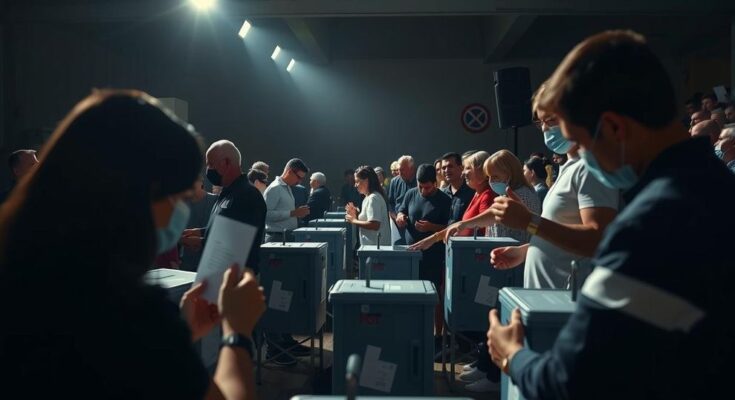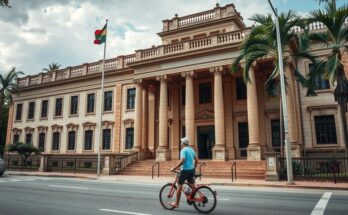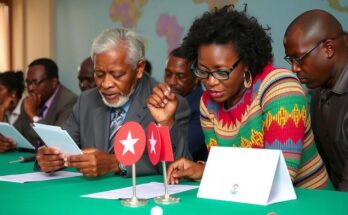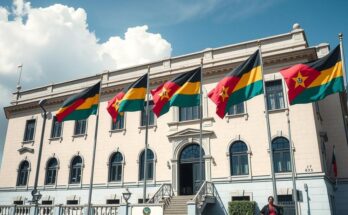Uruguay’s second-round presidential election on November 24 will see opposition candidate Yamandu Orsi face conservative Alvaro Delgado, with polls suggesting a narrow margin between them. Despite economic challenges, the political climate remains stable, allowing for a civilized election process. Voter turnout and engagement will be critical for both candidates as they seek to capture the support of undecided voters ahead of the runoff.
In the upcoming second round of presidential elections in Uruguay, voters will elect their next president, determining the future leadership of the nation.post-elections. On November 24, the election will feature opposition candidate Yamandu Orsi from the center-left Broad Front, against the incumbent-supporting conservative Alvaro Delgado, who has gained traction by allying with the Colorado Party. Recent polls indicate a highly competitive race, with a potential margin of less than 25,000 votes separating the candidates, reflecting a significant voter engagement in a country of approximately 3.4 million residents. Unlike the polarized political climates seen in neighboring countries, Uruguay maintains a relatively cooperative political environment, paving the way for a less contentious voting outcome.
Uruguay is characterized by its stable democracy and moderate political climate, which contrasts sharply with the more polarized environments found in countries like Argentina and Brazil. The current presidential election symbolizes a critical moment within this context, showcasing a shift among voters who are grappling with economic pressures, such as inflation and rising costs of living. This election not only serves as a referendum on the current government’s performance but also illustrates whether traditional parties can retain their support amidst global trends of political dissatisfaction.
The second round of the presidential election presents a crucial decision for Uruguayan voters, reflecting their preferences amid economic challenges and a stable political landscape. Candidates Yamandu Orsi and Alvaro Delgado both strive to secure votes from residual supporters of minor parties and those who abstained in earlier rounds. With the potential for a tight race and the need for effective governance, Uruguay stands at a pivotal juncture as it approaches its electoral outcome.
Original Source: www.ndtv.com




